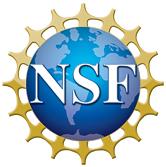 Several directorates within the National Science Foundation (NSF) — including Computer and Information Science and Engineering (CISE) — issued a Dear Colleague Letter this afternoon calling for proposals relating to the potential threat of debris fields from the March 2011 Japanese earthquake and tsunami upon the West coast of North America:
Several directorates within the National Science Foundation (NSF) — including Computer and Information Science and Engineering (CISE) — issued a Dear Colleague Letter this afternoon calling for proposals relating to the potential threat of debris fields from the March 2011 Japanese earthquake and tsunami upon the West coast of North America:
In the aftermath of the March 2011 earthquake and subsequent tsunami in Japan, fields of debris are now washing up on the western shores of the United States. According to the National Oceanic and Atmospheric Administration (NOAA), Japanese authorities say that approximately five million tons of wreckage flowed into the Pacific Ocean following the earthquake and tsunami. While a majority of it likely sank, experts estimate that between one to two million tons was left floating and is heading toward North America. The debris fields are expected to reach and potentially threaten the west coast of North America from the spring of 2012 through late 2014.
When unforeseen circumstances offer unique opportunities to advance basic knowledge, NSF has in place the Rapid Response Research (RAPID) funding mechanism. As noted in the [Grant Proposal Guide (GPG)], this mechanism is used to support activities having a severe urgency with regard to availability of, or access to data, facilities or specialized equipment, including quick-response research on natural or anthropogenic disasters and similar unanticipated events. In the past RAPID funding supported fundamental research activities related to acute events such as the New Zealand earthquake in February 2011, the earthquake and tsunami in Japan in March 2011, and the Deepwater Horizon oil spill in 2010.
The NSF Directorates for Biological Sciences (BIO), Geosciences (GEO), Engineering (ENG), Mathematical and Physical Sciences (MPS), and Computer & Information Science & Engineering (CISE) and the Office of Cyberinfrastructure (OCI) are accepting proposals to conduct research on the potential threat to the North American west coast from debris fields associated with the March 2011 Japanese earthquake and tsunami. Proposals must conform to the guidelines for preparation of Rapid Response Research (RAPID) proposals as specified in the NSF Grant Proposal Guide (GPG)…
See the full DCL here.
(Contributed by Erwin Gianchandani, CCC Director)









